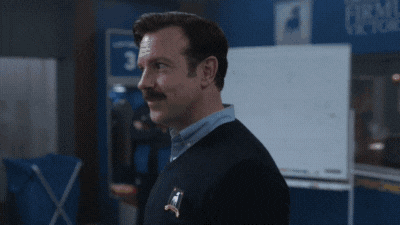Why Change Resistance Harms Us More Than We Think: The Golf Edition
Exploring the psychology of change resistance in golf through the lens of the PGA Tour vs LIV Golf standoff and its implications for golf course operators.

How much do you know about the way your brain works?
Did you know your brain is naturally wired to deter you from making changes that might actually be good for you?
First, let me tell you about the most expensive game of chicken in sports history.
In 2022, Saudi Arabia's Public Investment Fund (LIV Golf's financial backer) basically walked into professional golf with a suitcase full of cash and said, "Hey, want to try something different?" The PGA Tour's response? "Absolutely not. Golf is perfect exactly as it is, thank you very much."
Fast forward to today, and we're watching the most stubborn industry standoff since… well, probably since the last time someone tried to change something in golf.
But here's the interesting part: this whole LIV vs PGA drama isn't really about golf at all. It's a masterclass in what happens when entire industries dig their heels in until someone forces them to evolve.
It's getting at the crux of the problem, which is why do we, as humans, tend to resist change, even if the change is good for us?
If you're operating a business, this one's for you. And if you're running a golf course, this one's doubly for you.
The "We're Fine" Delusion
The PGA Tour spent decades operating like that friend who insists their flip phone works perfectly fine while you're over here video calling your grandmother from space.
Prize money? "It's adequate." Player benefits? "Traditional." Innovation? "Golf doesn't need gimmicks."
Here's what was really happening: they were comfortable. And comfort, as it turns out, is innovation's kryptonite.
Then LIV showed up offering guaranteed contracts worth more than some countries' GDP, and suddenly the Tour discovered they could:
- Create signature events overnight
- Restructure prize money
- Implement player equity programs
- Move faster than a golfer who just scored a hole-in-one
Plot twist: they always had these capabilities. They just needed their comfort zone to get torched first.
This isn't unique to golf; it's basic organizational psychology. We're hardwired to prefer the devil we know over the angel we don't. Even when that "devil" is costing us millions in missed opportunities.
Sound familiar? Because I see this exact scenario play out with golf courses every season.
The Loss Aversion Trap
Course operators will run the same manual booking system for years while muttering, "It works fine, our customers don't mind calling."
Here's the psychological reality: you're not actually evaluating whether your system is good, you're unconsciously avoiding the pain of change. Your brain literally doubles the perceived risk of potential losses from switching systems compared to potential gains.
This is called loss aversion, and it's why perfectly rational business owners stick with systems that are bleeding money rather than risk the uncertainty of something better… until the course down the road launches online booking and you start losing customers.
The Innovation Allergy
But that's not all we're fighting against. Our nature is to fall victim to what psychologists call "status quo bias"- we prefer things exactly as they are, even when change would obviously benefit us.
The PGA Tour had the same resources, technology, and market data for years. They knew what players wanted. They understood what fans craved. But comfortable organizations are allergic to self-disruption.
Most concerning of all, the Tour was trapped in what researchers call an "illusion of safety." Everything felt fine because it was familiar.
Not only do we prefer things exactly as they are, but we're capable of tricking ourselves into genuinely feeling like we're okay, regardless of the red flags.
It took $600+ billion in Saudi assets to shatter that illusion. Studies show that companies who innovate during crisis periods outperform their peers by over 30%, but most organizations only embrace innovation when survival is threatened.
The psychology is predictable- you'll resist change until the pain of staying the same exceeds the fear of trying something new. The lesson? You can either proactively challenge your comfort zone or wait for someone else to demolish it for you. One approach lets you control the narrative; the other makes you look like you're playing catch-up at your own game.
The Bottom Line
Here's what the great golf divide really teaches us: disruption doesn't happen to you, it happens because of how long you wait to address obvious problems.
For golf course operators, the writing's on the wall: you can either be the course that modernizes because you see the opportunity, or the one that modernizes because your competitor stole half your customers.
The PGA Tour had every tool needed to innovate proactively. They just needed external pressure to actually use them. Don't be the PGA Tour of golf courses.
Your customers aren't asking you to reinvent golf. They're asking you to make booking a tee time as easy as ordering coffee. They want pace of play information as readily available as the weather forecast. They expect course conditions updates more current than last week's newspaper.
These aren't revolutionary requests. They're table stakes in 2025.
The courses that figure this out (that blend respect for golf's traditions with operational excellence) will dominate their markets while their competitors are still explaining why their phone system went down during peak booking hours.
The choice, as always, is yours. But choose quickly because someone else just read this and is making moves.

Want to see how LEMON helps courses transition into modern golf course management? Shoot me an [email](mailto:natalie@golfwithlemon.com?subject=Golf Course Management Software Inquiry&utm_source=medium&utm_medium=referral&utm_campaign=change-resistance-article&utm_content=email-cta), or join our waitlist here.